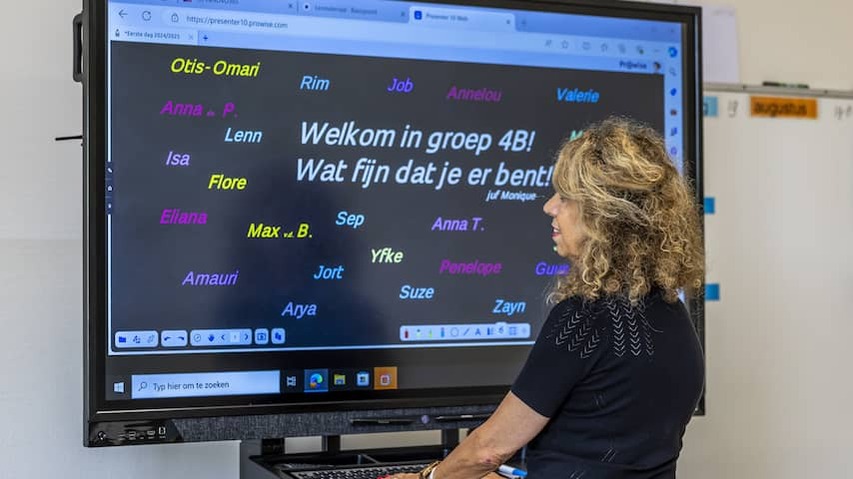
Flanders will prescribe very precisely what you as a primary school student should be able to do and know. The Netherlands deliberately does not do this, but there is also criticism of this.
From September 1, Flanders wants to introduce new minimum goals in primary education. The Flemish government has made them very concrete with the help of international experts.
For example, Flemish students in the sixth grade – comparable to group eight in the Netherlands – must be able to spell words that are spelled differently than they are pronounced. Examples of this are ‘team’ and ‘premier’.
The Netherlands chooses to develop ‘vague’ core learning objectives. SLO, the national expertise center for the curriculum, is in an advanced concept commissioned by the Ministry of Education, Culture and Science no more concrete than “connecting form and meaning to find the correct spelling”.
According to SLO, the choice to prescribe much less concretely what students should know, be able to do and experience is deliberate. The Netherlands is afraid that schools will otherwise only focus on achieving those lower limits. “While in the Netherlands we want schools to look beyond the minimum,” says a spokesperson for SLO.
‘Effect can only be tested if you know exactly what you want’
The new Dutch core goals will be more concrete than the current ones from 2006, says the expertise center. According to SLO, more freedom surrounding what primary school students should be able to do and know also requires more “professionalism” from the teachers involved.
Professor Anna Bosman calls the Dutch choice for less concrete goals “a very bad idea”. The professor of special education at Radboud University, together with other international experts, drew up the proposed Flemish learning goals at the request of Flanders.
“Vagueness may be fun in art, but in education it should be made as clear as possible what needs to be learned,” says Bosman. “We can only determine whether we have taught students what we want them to learn if you know exactly what you want them to learn.”
The PO Council says on its own website that new core goals are desperately needed. According to the umbrella organization of primary schools, the current core goals are too vague and offer teachers too little guidance.
Uncertainty About Words Borred from Foreign Languages
At first glance, according to Bosman, it may not even sound so vague if it says somewhere that students must master all the words of Dutch spelling. But asking questions about which words should be included, according to the researcher into learning and learning processes, quickly leads to ambiguities.
“Should they also be able to spell head-tail collision, obstacle, intelligence quotient and remedial teacher?” Bosman gives as examples. “Or words borrowed from foreign languages, such as überhaupt, dixieland music, gedeletet and saven? You have no idea what is expected.”
Netherlands Higher on the numeracy ranking than Flanders
If it is up to Bosman, the Netherlands should approach learning and core goals for primary education in the same way as Flanders. But SLO points out that Dutch primary school students do better in international rankings than their Flemish peers in the field of arithmetic.
On the other hand, the arithmetic performance of Dutch fifteen-year-olds is declining. And in terms of reading skills, this group of secondary school students is even at the bottom of the European Union.
The Dutch concept core goals are currently being tested in schools and adjusted if necessary. At the end of this year, the House of Representatives will receive them again for inspection. The new core goals for Dutch and mathematics are expected to come into effect on August 1, 2026.